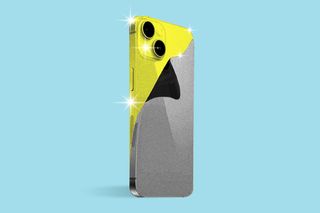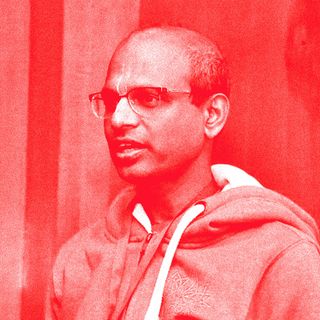
How Apple Defies Consumer Logic
It’s expensive, quickly outdated, and hard to repair – so why does everybody covet its products?

The new line of iPhones was just unveiled at Apple’s iPhone 15 event. They promise to be the “strongest, fastest, and pro-est iPhones ever,” The Verge reported. The phones in question: iPhone 15 Pro and iPhone 15 Pro Max. There’s finally a USB-C port that replaces the Lightning Cable – bad news for old iPhone users whose devices may, in the near future, become obsolete, much like wired earphones did when the headphone jack disappeared from iPhones. The new iPhones also have something called an “action button.” Besides that, and a few tech specs upgrades, they’re pretty much… the same. For all practical purposes, that is.
With each new Apple release, there’s a pervasive question in the air that everyone asks but nobody takes seriously: why does Apply defy consumer logic so much? The products are expensive, quickly outdated, and hard to repair. They’re durable products from a hardware perspective, but very little is in the users’ control from a software standpoint: Apple is notorious for “planned obsolescence,” which forces consumers to constantly keep upgrading their Apple products. So why does it remain the most outrageously popular brand of tech by miles?
For one, Apple isn’t a tech company, noted Above Avalon. “It’s a design company betting that consumers want something more than just technology in their lives.” Steve Jobs was known to be a design perfectionist. “Distinctive design—clean and friendly and fun—would become the hallmark of Apple products under Jobs,” The Smithsonian reported. “In an era not known for great industrial designers… [Apple’s] guiding tenet was simplicity—not merely the shallow simplicity that comes from an uncluttered look and feel and surface of a product, but the deep simplicity that comes from knowing the essence of every product, the complexities of its engineering and the function of every component.” Apple’s first marketing brochure made a claim that set the standard in tech: “simplicity is the ultimate sophistication.”
The emphasis on elegance, arguably more than the robustness of the hardware, has made Apple products into something more than devices: they became lifestyle signifiers, almost acquiring a moral, quasi-religious quality that speaks for users’ affluence, elegance, and refined tastes. Apple is fashionable. “Small consumer tech now matches expensive watches and jewelry as commodity fetishism, and Apple is the undisputed champion, creating a powerful mythology around their pricey products. Apple stores are like brightly-lit secular churches in our air-conditioned malls, attended to by an army of blue-shirted guides offering advice to the laity,” The Baffler noted.
Researchers have even studied the theatrical element to Apple Special Events, drawing journalists and consumers from across the world to participate in the company’s myth-making. These events employ the power of narrative, a paper argues which is a “reactivation of the religious archetype of the narrative for the mass use and consumption by millions of users.”
Related on The Swaddle:
How Tech Companies Take Away the Right To Repair Our Devices
In fact, the religious undertones of Apple’s mythical following hasn’t been lost on sociologists. In 2015, an NYU professor famously called Apple a cult. Even the Apple stores are meant to evoke devotion: “It creates a space that emphasizes your smallness when you walk in. You look at something far away, and that makes your body feel like you’re entering somewhere sacred or holy,” Erica Robles-Anderson, cultural historian and the NYU professor in question, told Atlas Obscura. It’s a trick used in cathedrals and ziggurats. And it’s meant to draw on individualism and community — which could be Apple’s secret sauce. Apple fans are treated as belonging to an in-group. “There’s more and more evidence that we’ve never stopped worrying about cosmological questions or communities,” says Robles-Anderson. “Technology is part of the fantasy that we’ve progressed away from those kind of explanations… [But] They’re dealing with the exact same problems — are you files really on your personal device or are they in the cloud in the sky?”
Once you pay attention, the religious parallels are everywhere. The launch of the first iPhone in 2007 had the media dubbing the gadget the “Jesus phone.” Steve Jobs’ presentation giving the iPhone to the world had a Biblical quality to it. Umberto Eco, the semiologist, compared Macs and PCs to Catholicism and Protestantism. “This religion is based on an origin myth for Apple Computer, heroic and savior legends surrounding its co-founder and current CEO Steve Jobs, the devout faith of its follower congregation, their belief in the righteousness of the Macintosh, the existence of one or more Satanic opponents, Mac believers proselytizing and converting nonbelievers, and the hope among cult members that salvation can be achieved by transcending corporate capitalism,” consumer behaviourist Russell Belk toldWired. Even its logo is Biblical.
It’s less the tech specs of the products and more the mythos of the brand that attracts unwaveringly loyal users. Apple’s simplicity, in fact, has origins in Steve Jobs’ own influence from Buddhism, which is a detail that only adds to the personality cult around the brand. But researchers explain that “there’s nothing effortless about it,” as BBC News reported. Susan Fournier, the Allen Questrom Professor and Dean at Boston University’s Questrom School of Business explains how “cult brands carefully tap into the consumer psyche to become closely intertwined with fans’ lifestyles, adding that these companies don’t just sell products – they tap into a ‘resonant cultural theme.'”
This, in turn, has a neurological basis to it. Researchers have dubbed the consumer frenzy around Apple products “neurological connectivity,” which is when “a retailer, brand or service creates a strong psychological and emotional response that operates on a subconscious level for the consumer in a way that is typically not readily understood nor necessarily recognized by the consumer,” wrote Robin Lewis in Forbes. “Once connected, Apple and its cult of addicts are impervious to competitors. Steve Jobs was almost obsessed with building this deep connection with consumers. His ability to translate science, technology and innovation into artistically designed, consumer-friendly products is now legendary.”
Apple’s myth-making is also deeply embedded in the cultural. Apple projects itself as a cool, laidback, spiritually elevated buddy; the Silicon Valley guru you can hang out with on a meditation retreat. “Less a company, more a trillion-dollar California cult designed to brainwash us with pleasant high-tech visions and the comfort of a walled garden,” is how Mashable described it in the wake of the iPhone 13 launch, which was a “love letter” to Apple’s birthplace, California. It was an homage to the countercultural spirit the company wanted to project of itself: “Jobs, the prodigal messiah, guided Apple back towards the light, pushing colorful, clean design and media-making fantasies in the way it still does today. He celebrated the life blood of California’s economy — ‘the crazy ones’ who ‘think different’ — and the counterculture-style remixing of ‘rip, mix, burn,'” Mashable added.
It’s easy to forget the price, the materiality of the device — they’re almost secondary. But some have begun to push back. The Right to Repair movement, for instance, takes aim at Apple’s rigid hardware which only Apple knows how to crack. It’s also easy to forget how all of it is made in China, subject to labor violations, and is a business profiting off an exploitative global supply chain. It’s no different, in other words, from most other tech companies. But then again, is it even a tech company?
Rohitha Naraharisetty is a Senior Associate Editor at The Swaddle. She writes about the intersection of gender, caste, social movements, and pop culture. She can be found on Instagram at @rohitha_97 or on Twitter at @romimacaronii.
Related


Director of IIT Mandi Blames Himachal Landslides on… Meat‑Eating
